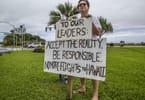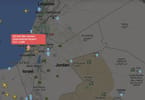HE Senator Akel Biltaji is Special Advisor to His Majesty King Abdullah II of Hashemite Kingdom of Jordan. In 2001, HM King Abdullah appointed him as Chief Commissioner of the Aqaba Special Economic Zone Authority (ASEZA), a world-class Red Sea business hub and leisure destination. In February 2004, HM appointed Mr. Biltaji as his advisor for country branding, tourism promotion, interfaith, and foreign investment. Here, in a conference call between HE Biltaji, eTurboNews publisher Thomas J. Steinmetz, and eTurboNews Middle East editor Motaz Othman, the Senator shares his thoughts about tourism industry topics.
eTN: We saw some comments from you that the UK tax situation could be very damaging for UK arrivals in Jordan. Can you give us some input about what the UK tax is really doing in your country? Also, tourism is one of the victims of the financial crises around the world. What advice do you have on what can be done so that tourism remains a viable source of income for the millions of people employed by the industry?
HE Senator Akel Biltaji: Travel and tourism is becoming the number one industry in the world, surpassing oil and the auto industry; you can double check the figures. It may not have beaten oil prices, but travel and tourism is [one of] the top leading industries in the world, and with the economic downturn from September last year (2008), everybody is looking for a stimulus. Billions of dollars are being injected into banks, the auto industry, in infrastructure to create jobs, and the UK is not different from the USA, including China, Japan, all of Europe, and Asia. When we talk about the balance of trade between countries, everybody is trying to push the balance to his side or his products. When you push USA, UK products into Jordan or into the world, in return you have to accept that others want something in return. Interestingly enough, tourism becomes a major component in this balance of trade, when you look at the sales from England as an example. The country has to look also to the income that flows from travel and components that come from England. If we keep on adding taxes, adding fees on fuel, airports, tickets, and inventing these surcharges, I think we are shooting ourselves in the foot. It’s very counter-productive. The Caribbean is also a source of trade balance with the UK. If the Caribbean is doing well and if Jordan is doing well then the UK is doing well. We must not put any stops on tourists reaching a destination. We must keep the economy working. When a country is doing well, it can purchase products from another country.
Also other subjects such as affordability and accessibility may have been touched on in your interview with Nayef Al Faez, but when you sell your destination, you have to make your products available and affordable. If you keep on increasing the taxes and surcharges, then you are penalizing tourists and travelers who want to reach their destination. I mean, when travelers are coming to a destination, they are creating jobs in the country, and they will purchase and buy products from the country as well, so it’s two-way traffic. I believe we should not be adding and inventing surcharges. For companies who own airports, now we have a problem here in Jordan, where the company jacked up and increased the fees, and the Jordan government is reading the agreement again. They jacked up their prices for handling, so if companies that are owned by financial firms now start playing with the destiny of a travel and tourism country and a destination, I believe we are being penalized and punching each other and just being short-sighted.
eTN: Britain is an important example, and there are other examples, where they are doing this to raise their income tax. You would think, though, if this fee deters tourists from visiting, then the UK would actually end up with less revenue.
Biltaji: Exactly; this is what partnership is all about. You know Britain has benefitted from all the world. The sun has never set on their empire. They have made money pushing their products around the world. Now to come to prevent people to travel out of England simply because they are adding more money to a ticket and to air passengers, that is not fair. The big boys and the big leaders should act and should be leading everybody else by facilitating and giving a stimulus to all other small, under-developed countries to show them that its not in taxes that we collect that gives us money to balance our budgets, it’s by stimulating tourism and travel. We are learning from each other; we appreciate each other. Look at what Obama is doing – it’s better than the previous administration. Americans are now encouraged to travel, and they are improving and polishing the image of the USA. It should be the same with Britain.
eTN: Other countries, like Indonesia, have been charging its citizens for the past 15-20 years around US$100 to leave the country. Do you think that other countries, like the US or China, might also consider charging fees to its departing citizens?
Biltaji: I don’t want to generalize all fees and surcharges. Maybe Indonesia is in a different situation, as those who are leaving, are going as laborers to work and bring in money. But sticking with travel and tourism, passengers leaving on a low-cost carrier and ending up paying taxes equal to or more than the price of the ticket is ridiculous. I’m concern about EasyJet, about Ryanair, about Monarch Airlines, and other low-cost carriers operating out of England. They will be the first ones to be penalized, because the amount added to the price offered is making flying not affordable.
eTN: Do you see an increase in travelers from the US to Jordan?
Biltaji: Absolutely, absolutely, and I can confirm this as I’m the vice chairman of ATS, the American Tourism Society, and we can say that the numbers are showing improvement; bookings are improving from the USA. Since the new administration has projected and assisted, people are encouraged, are welcomed, I know that for sure. I met a number of congressional leaders, community leaders, and industry leaders that have come to Jordan, and they all go back with extremely positive impressions. They say, we didn’t know that we are welcomed here. There was a negative impression from their side. I’m not promoting the recent administration, I’m simply promoting travel and tourism and anything to enhance what I’m giving my time and my effort to serve. So yes, the new administration gave a new push and encouragement to USA travelers to travel again, and they are welcome. ASTA, ATS, USTOA – all of these organizations are effective, and they are all carrying their annual meetings to be held in Europe, in the Middle East, in the Caribbean, and in Asia. Things have changed with US new administration. Something important to add is that travel and tourism is the strongest component of all weapons to defeat terrorism. Tourism is the moving of people, is contact between people, is exchanging views, is opening to one another, is embracing, is smiling, is hospitality. The impact of tourism is highly underrated. It is so positive that we ought to encourage and advocate it, so that countries like Britain who take steps to add taxes and surcharges would think twice before doing such a thing, because the more people that travel out of England, the more ambassadors there are for England, and that is the same all over the world.
eTN: Jordan was very active and a positive and good example in helping peace through tourism. I remember the IIPT (International Institute for Peace Through Tourism) was first held in Jordan in 2000. I agree with you that the current US administration is helping tourism and that Jordan will be the platform for peace through tourism, in particular with the cooperation with UNWTO as Dr. Taleb Rifai is now the CEO.
Biltaji: Yes, for a number of reasons. You know our leadership, his Majesty King Abdullah, keeps repeating and telling us and planting in our heads, that treasures we have in Jordan, like Petra, the Dead Sea, Jerash, and religious sights, we don’t own them, they belong to the world, they belong to humanity, and we are to be custodians; we are only protecting world heritage. This is the spirit here in Jordan. We work and offer our sites and antiquities to the whole world.
I will shift to another subject now – medical tourism. We have had just two groups from the USA from insurance companies that came here to study the possibilities of having operations, cardiology work, dental work, open-heart surgery, etc. for their clients, American patients. In Jordan, you know the cost here is only 25 percent of what the same procedure carried out in USA would cost, and that includes the flight and return ticket. Royal Jordanian flies 16 times from the USA with an 11-hour, nonstop flight, and Continental and Delta also fly here. Jordan became the no. 5 medical destination worldwide after Brazil, India, Thailand, and maybe Korea. King Hussein has built a Royal medical service here in Jordan that is compatible to the Mayo Clinic. In Britain, for an open-heart surgery, you have to wait 3-4 months. Here, it will be available in one week’s time. Here we have UK and American standards of accreditation, and professors and doctors have graduated from American and British universities. Besides medical procedures, we have therapeutic treatments in the Dead Sea – the water and the mud. By raising taxes, travelers cannot enjoy all of this here in Jordan and around the world. What I’m trying to say is that Jordan as a medical destination is accessible, affordable, accredited, and credible.
eTN: Would American insurance companies cover the costs of surgical operations for their customers if they have the work done in Jordan?
Biltaji: Yes, insurance companies can come here and negotiate with private hospitals and get prices and contracts, and I will not be surprised if Americans and Europeans come to Jordan and have open-heart operations here.
eTN: Do you believe that tourism will be the way out from the financial problems around the world?
Biltaji: We are talking about small and medium business, and tourism is reaching directly to those firms and reaching to the people all around. Tourism creates jobs; travel brings health to people and brings faith by visiting the holy sites. Let us bring prices down to make tourism affordable and accessible and not increase and add taxes.
WHAT TO TAKE AWAY FROM THIS ARTICLE:
- They jacked up their prices for handling, so if companies that are owned by financial firms now start playing with the destiny of a travel and tourism country and a destination, I believe we are being penalized and punching each other and just being short-sighted.
- It may not have beaten oil prices, but travel and tourism is [one of] the top leading industries in the world, and with the economic downturn from September last year (2008), everybody is looking for a stimulus.
- I mean, when travelers are coming to a destination, they are creating jobs in the country, and they will purchase and buy products from the country as well, so it's two-way traffic.






















